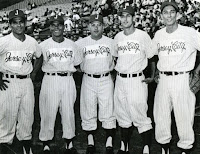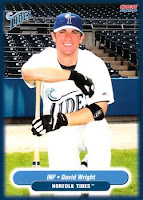The Havana Sugar Kings was a Cuban-based team, founded in 1946 by Joe Cambria, an Italian-born scout in the U.S. professional baseball system, and sold in 1954 to Roberto "Bobby" Maduro, a Cuban of Jewish descent. They won league championships in 1947, '48, and '57 as minor-league affiliates of the Senators and Reds, before growing tensions with Castro's government prompted the them to embark on a journey of Homeric proportions. The year was 1960 and the team once known as The Cubans was heading to America. It would take them a full decade to find a permanent home there.
The decision to move the team was made by D.C. bureaucrats and enforced by Major League Commissioner Ford Frick. Maduro, who had just reached a deal with Castro for the club to stay in Havana permanently, was not consulted and faced financial consequences (eventually. he was forced to leave Cuba after the government seized his family's assets). Castro, a life-long baseball fan, viewed the removal of the team as a sign of U.S. aggression. Several of the players and the team manager refused to leave. The new manager, Nap Reyes, was branded a traitor.
 The rest of the team, including its remaining Cuban players, was relocated to Jersey City. Known simply as the Jerseys, they played their home games at historic Roosevelt Stadium. The ballpark had already carved out its place in history in 1946, when it hosted Jackie Robinson's minor-league debut as a member of the visiting Montreal Royals. Incidentally, in 1947 the Brooklyn Dodgers moved their spring training camp to Cuba, so Robinson would have less distractions as he prepared for the great task that lied ahead.
The rest of the team, including its remaining Cuban players, was relocated to Jersey City. Known simply as the Jerseys, they played their home games at historic Roosevelt Stadium. The ballpark had already carved out its place in history in 1946, when it hosted Jackie Robinson's minor-league debut as a member of the visiting Montreal Royals. Incidentally, in 1947 the Brooklyn Dodgers moved their spring training camp to Cuba, so Robinson would have less distractions as he prepared for the great task that lied ahead.In the summer of 1961, Roger Maris monopolized the sports media as he threatened Babe Ruth's single-season home run record. Unsurprisingly, this proved to be a much larger draw for northern New Jersey fans than a minor-league affiliate of the far-away Cincinnati Reds. Unable to compete with the Yankees, attendence fell and the team folded after only two years. Sold to the Cleveland Indians, the Jerseys were moved to Jacksonville, Florida in time for the '62 season, and renamed the Suns.
The Suns played at Wolfson Baseball Park from 1962 to 1968. The previous decade, Wolfson was the site of a concert that featured a 20-year old upcoming musician named Elvis Presley (Elvis had to hide in the ticket office to escape a mob of female fans). That is how a team formerly known as the Sugar Kings and a man who would become known as the King of Rock and Roll both came to play in the same arena. While in Jacksonville, the team changed hands from the Indians to the Cardinals to the Mets. Baseball greats such as Tommy John, Nolan Ryan, and Tom Seaver wore the Suns uniform during this time.
 In 1969, at the request of the Major League Realignment Committee, the Mets relocated their farm club to Portsmouth, and then Norfolk, Virginia. They adopted the name Tidewater Tides from a previous franchise that had left town several years earlier, but switched to Norfolk Tides in 1993.
In 1969, at the request of the Major League Realignment Committee, the Mets relocated their farm club to Portsmouth, and then Norfolk, Virginia. They adopted the name Tidewater Tides from a previous franchise that had left town several years earlier, but switched to Norfolk Tides in 1993. After 45 years as the Tides, the club from Havana is certainly more at home in Norfolk than they'd feel if they returned to Cuba . Fidel Castro, who used to attend Sugar King games as a revolutionary in his 30s, is now 89 years old and no longer holds a political office. We are left to wonder if Fidel ever checks the Tides' website to see how the old team is doing. With renewed relations between U.S. and Cuba, perhaps he'll even make the trip to see the them one last time in person. Or perhaps the U.S. Minor Leagues will incorporate a new Cuban-based team and the journey will start all over again.
Further reading:
Read a short biography of baseball visionary Roberto "Bobby" Madura here.
Sources:
Breaking up with Cuba: The Dissolution of Friendly Relations Between Washington and Havana, 1956 - 1961, Daniel F. Solomon, McFarland Publishing, 2011
"Havena Team to Stay", The New York Times, April 24, 1959
"Guards Assigned Nap Reyes after 'Traitor' Charge", The Washington Post, Times Herald, July 17, 1960
"Baseball with a Spanish Accent Blossoms Today in Jersey City", Howard M. Tuckner, The New York Times, April 18, 1961
"Jersey City Facing Loss of Ball Team", Howard M. Tuckner, The New York Times, July 9, 1961
"Jacksonville Club Moves North", The New York Times, November 26, 1968
Many Wikipedia pages

